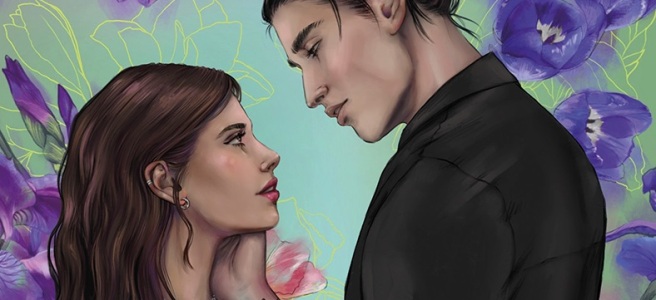From classic works of literature—The Great Gatsby and Romeo & Juliet—to more contemporary movies like My Best Friend’s Wedding, tales of star-crossed lovers, both requited and unrequited, have kept audiences enthralled generation after generation. But what exactly is the magic behind these stories of love that goes unfulfilled, and what it is about this chase after somebody who doesn’t return our feelings that holds such remarkable power over our emotions?
Unraveling the Psychology of Unrequited Love
Our brains are wired for rewards, and dopamine—a neurotransmitter closely linked to reward, pleasure, and motivation—causes us to like the unattainable even more. When we desire somebody who doesn’t have the same feelings, uncertainty and challenge may boost this effect of dopamine, not so unlike a high-stakes gambler or risk taker. This biochemical response will feed our imagination and enhance the longing for our love object.
Also Read : Assessment: Is Polyamory Right For Me?
According to Madison McCullough, a licensed clinical social worker, psychotherapist, and clinical supervisor, it’s very likely to be a combination of psychological reasons that makes us so attracted to unavailable people. That impossibility of getting their love may heighten the feelings of attraction toward them through reverie about scenarios in which we might win their love despite the odds. The process might also act as a distraction from one’s own insecurities or fear of vulnerability in fully intimate relationships.
The Role of Romantic Rejection
What’s interesting to note here is that the more romantically rejected we are, the more it tends to raise desire for unreachable things. Rejection activates a part of the brain that rewards it, increasing the amount of dopamine released and making us work harder for what doesn’t seem attainable. McCullough likens it to the gambler’s high that comes in with being constantly at the mercy of an unpredictable jackpot—whereby the intermittent rewards of attention or scenes of near-connection keep us going and hanging on for love from those who keep remaining emotionally unavailable.
Cultural Influences and Societal Norms
Beyond neurobiology, there are societal and cultural narratives regarding love and perceptions of desirability. That is, media often argues for romantic pursuit and raises, to a higher level, those that get apparently unattainable partners. This might make one pursue a relationship with a partner perceived as more socially desirable or otherwise attainable due to status or fame.
McCullough writes, “Cultural stories and media often reinforce the notion thatour worth is attached to our relational status. To the degree this is true, we can end up idealizing relationships with people who offer us more social capital or status, regardless of their actual availability or compatibility.”
Breaking the Pattern: Moving Toward Fulfillment
It can be beyond difficult to snap out of self-sabotage cycles of unrequited love. If you are aware, real, and truthful to your motives, by understanding if you are driven for a real attraction or because of the rush associated with the forbidden, your time and emotional energy will then be transferred to more rewarding connections.
McCullough advises developing self-identity and building a network of trusted friends or therapists to help guide one through such patterns of attraction to unavailable people. Able to provide the power to set healthy limits, it is warning enough to watch out for the first signs of unavailability, thus investing in relationships that offer reciprocity and emotional gratification.
Embracing Emotional Growth
Ultimately, unrequited love involves attitude towards the situation and cultural perspective for taking care of oneself, whether embracing singlehood or engaging in mutually fulfilling relationships. Such regard for one’s emotional well-being and authentic connection insures long-term fulfillment and resilience.
McCullough writes, “All things considered, by perceiving where both psychological and cultural elements take part, people can free themselves from the rollercoaster of emotions that can ensnare them in one-way love and cultivate relationships that nourish their true self.”

Cultural Narratives and Media Influence
The portrayal of unrequited love in literature, film, and media complements cultural ideals pertaining to romantic pursuit and idealized accounts of love. From classic tales of unrequited passion to contemporary narratives that celebrate persistence in romantic pursuit, these stories underline these ideals and set societal expectations and norms to experience unrealistic expectations, thereafter perpetuating longings for and dissatisfaction with personal relationships.
Self-Esteem and Social Validation
Our sense of self-worth and social validation can also make us gravitate toward unavailable or desirable individuals because of their status or popularity. Indeed, McCullough has posited that the sociocultural need for achieving social distinction or otherwise enhancing one’s status through romantic relationships predisposes individuals to enter into relationships with partners offering a backload of perceived social capital, independent of emotional availability or compatibility. This pursuit of external validation of the self by way of relationship with an unavailable partner gives away deeper insecurities versus unmet needs for acceptance and affirmation.
Breaking the Cycle: Strategies for Emotional Resilience
If one has to free themselves from this attraction to unrequited love, one will need to work at both psychological, emotional, and social levels:
Self-Awareness and Introspection: Engage in honest introspection to spot underlying motives and patterns of attraction toward unavailable partners.
Healthy Boundaries: Setting a clear boundary of your identity within relationships so that one’s emotional energy is safeguarded and relationships proceed on mutual respect and reciprocity grounds.
Seeking Help: It means looking out to credible friends, family, and mental health experts for help during times of emotional struggle and therefore developing ways to cope with such situations.
Love to Self: Taking care of oneself with activities that promote self-esteem and self-compassion and celebrate improvement in solo self without the connotation of any love relationship.
Exploring New Perspectives: Challenging cultural narratives and societal expectations about love and relationships in order to redefine personal values and priorities.
Embracing Emotional Growth and Authentic Connections
Through these mechanisms, one will build resilient and authentic relationships with a deepened understanding of the psychological underpinnings of romantic desire. It allows moving beyond the wildly vaunted promise of unrequited love into an intensified version thereof: mutual respect, emotional intimacy, and genuine fulfillment. These are relationships that will last.
Conclusion
From unrequited love, across cultures and generations, a timeless human theme tells complex interplays between biology, psychology, and culture narratives. Unraveling the mystery of being drawn to things that can’t be had, adopting strategies for emotional resilience, and growing from them, in a way people could self-consciously understand love and relationships for a fulfilling experience.
References
Madison McCullough, LCSW, “Understanding Attachment Styles and Unrequited Love”
“Limerence: The Experience of Being in Love,” Psychology Today
“Media Influences on Social Outcomes: The Impact of Media and Social Media on Perceptions of Romantic Relationships,” Journal of Media Psychology


One thought on “From Fated Romances to Taboo Desires—The Allure of Unattainable Love”